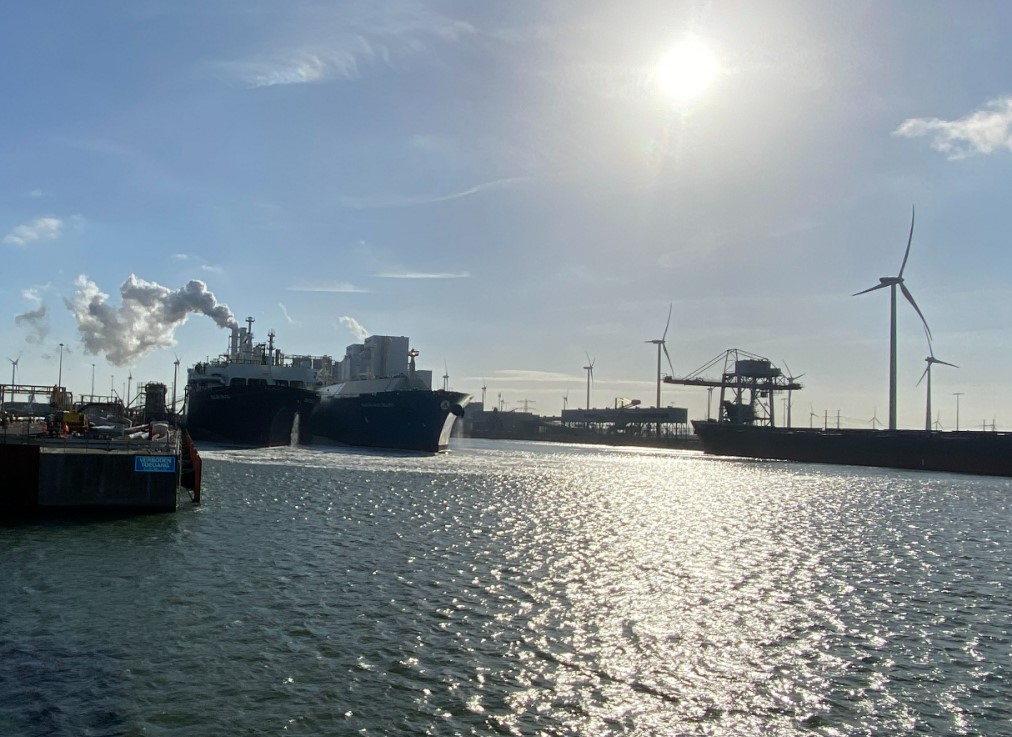Czech utility CEZ said it had received the second liquefied natural gas cargo at Gasunie’s new LNG import hub in the Dutch port of Eemshaven.
In September, CEZ received its first cargo from the US via EemsEnergyTerminal, which consists of two chartered floating storage and regasification units or FSRUs.
Now the company also received a cargo from the US onboard the 159,800-cbm Maran Gas Delphi, owned by a joint venture consisting of Nakilat and Maran Gas.
According to a statement by CEZ on Monday, the firm bought the LNG cargo from LNG giant Shell.
The LNG tanker delivered the shipment to Eemshaven from Venture Global’s Calcasieu Pass LNG terminal in Louisiana.
It has already unloaded the shipment to the 170,000-cbm Golar Igloo, which serves the Eemshaven hub along with Exmar’s 26,000-cbm barge-based FSRU Eemshaven LNG.
Golar Igloo appears to be renamed to Energos Igloo following the completion of a joint venture between US LNG player New Fortress Energy and compatriot asset manager Apollo.
Also, Gasunie has temporarily moved Exmar’s FSRU to Julianahaven in the Eemshaven for additional technical work, a Gasunie spokeswoman told LNG Prime. The two units should meet again later this month.
8 bcm per year
Gasunie’s new terminal with a capacity of about 8 bcm per year started delivering regasified LNG to the Dutch grid in mid-September.
EemsEnergyTerminal, the first FSRU-based facility in the Netherlands, has been prepared in record time as the Netherlands and other European countries such as Germany and the Czech Republic look to slash reliance on Russian pipeline gas and boost energy security.
Gasunie expects the LNG terminal to reach full capacity by the end of November or beginning of December.
Shell booked 4 bcm while CEZ took 3 bcm of the terminal’s total capacity. France’s Engie secured the remaining 1 bcm of capacity.
CEZ says the booked capacity at Eemshaven is enough to cover about a third of the annual gas demand in the Czech Republic.

